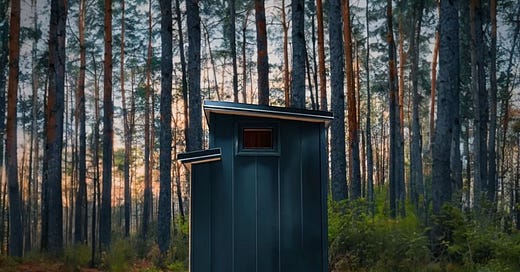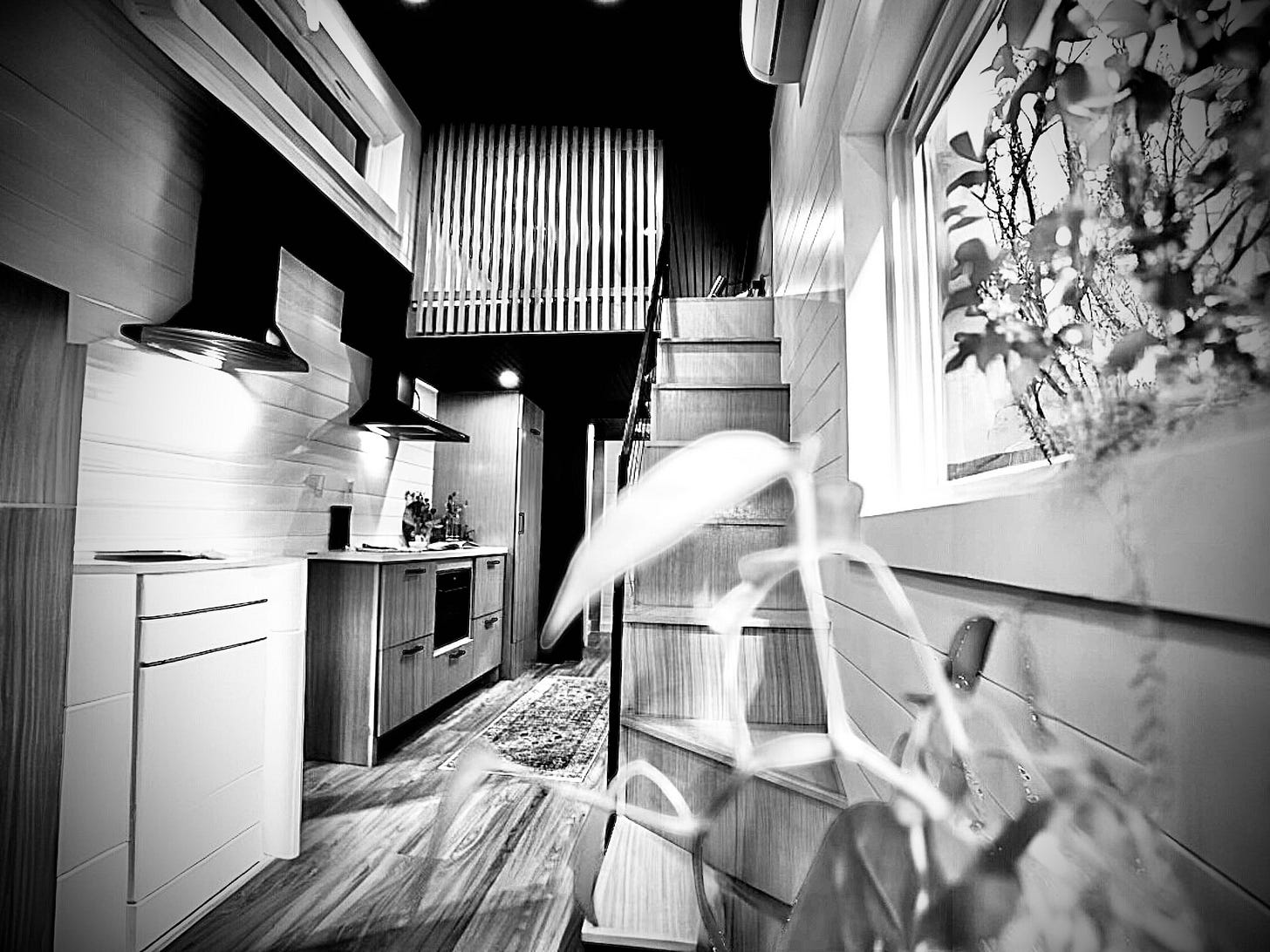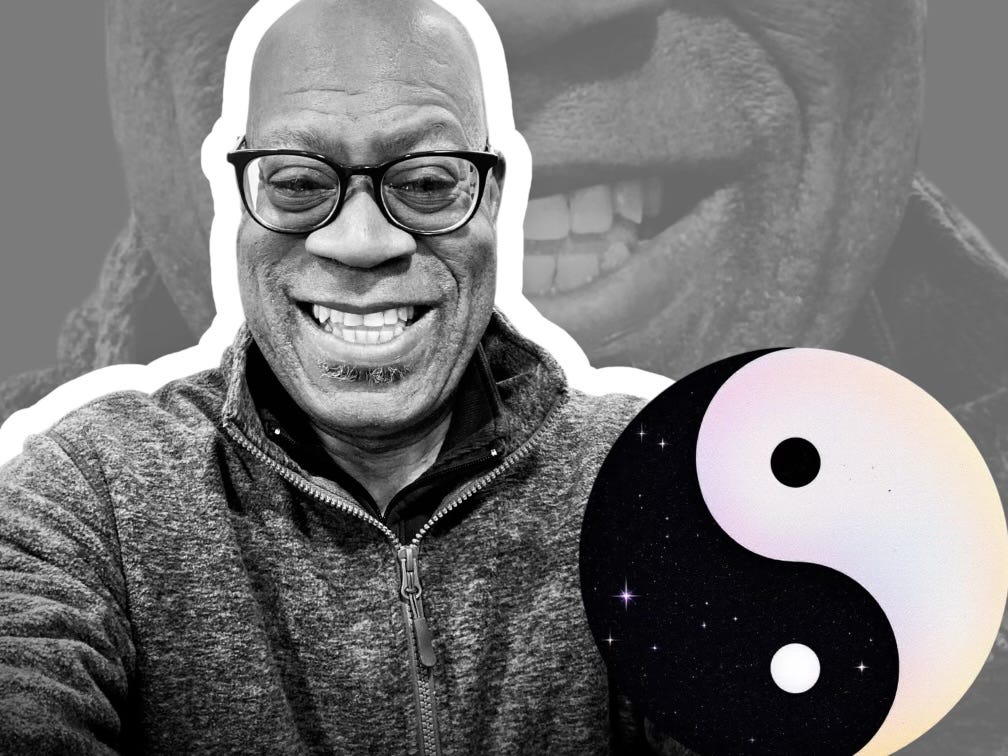The traditional American dream—an expansive home, lush lawn, and overflowing garage—is quietly being dismantled.
In its place? A radical reimagining of what it means to live well, led not by extravagance, but by essence.
The tiny home movement, once relegated to fringe minimalists and off-grid idealists, has gained surprising traction amid rising home costs, environmental urgency, and shifting values. But beneath the surface of financial practicality and spatial efficiency lies a much older, deeper wisdom…..The Tao.
Taoism, the ancient Chinese philosophy rooted in natural harmony, flow, and simplicity, offers a profound lens through which to view this minimalist lifestyle. The Tao, or the Way, invites us to observe nature’s rhythm, to detach from excess, and to live with authenticity. When we align with it, we don’t resist life’s current—we ride it, gracefully.
Anabella Mainetti, CEO and co-founder of Mainefactured, a trailblazing tiny home design company, understands this ethos intimately. Her mission is to help people trade square footage for soulful living.
But don’t mistake that for sacrifice. “At its core, tiny home living isn’t about sacrifice,” she says. “It’s about intentionality. It asks, What do I really need? What do I truly value?”
That question echoes loudly in the I Ching, or Book of Changes, Taoism’s ancient divination text and philosophical guide. In Hexagram 62, Xiao Guo—often translated as “Preponderance of the Small”—the wisdom is clear: “Success lies in small things. Perseverance furthers.”
This hexagram counsels humility, discretion, and the power of the modest. In other words, the way forward is not always to expand outward, but to refine inward.
Tiny home living is the architectural embodiment of this philosophy. Rather than sprawling out into the world, it asks you to contract toward your center. To design not around accumulation, but intention. Anabella affirms this: “Our best clients aren’t chasing square footage, they’re chasing meaning.”
To the Western mind conditioned to associate “more” with “better,” this mindset can feel jarring—even threatening. But to those attuned to Taoist thought, the liberation comes not from scaling up, but stripping down.
“What surprises most people isn’t the downsizing,” says Anabella. “It’s the liberation that comes with it… cleaning takes minutes. You hear the birds outside. You spend more time outdoors, more time with people, and less time managing stuff.”
Such stories mirror the Taoist concept of wu wei—effortless action. In a tiny home, clutter is eliminated not just from your shelves but from your mind. Energy flows more freely. You begin to experience what Taoist sages wrote about millennia ago… stillness within movement, presence within simplicity.
Yet it’s not without its tests. The transition to tiny living, like any initiation, demands self-awareness. “It’s not about cramming your old life into a smaller box,” Mainetti reminds us. “It’s about reshaping your life to fit your values.”
The I Ching’s Hexagram 24, Fu, or “Return,” speaks to this cyclical recalibration. It suggests a return to the root, a shedding of the artificial in favor of the authentic. A tiny home, then, becomes not just a structure but a symbolic return—to center, to nature, to self.
And the results? Mainetti’s clients report the unexpected joys of this lifestyle: mental clarity, emotional lightness, and an enhanced connection to the natural world. They speak of mornings unburdened by maintenance tasks, evenings filled with conversation, and weekends dedicated to experiences rather than errands. What they’ve let go of in square feet, they’ve gained tenfold in freedom.
Of course, tiny home living isn’t for everyone. Anabella advises deep introspection before making the leap….
“…. Ask yourself—what do I truly need to feel at home? Am I willing to trade excess for ease? What kind of freedom am I seeking—financial, spatial, emotional?”
These questions aren’t just logistical—they’re spiritual. They echo the Taoist prompt to know the self deeply and live in accordance with its nature. If your heart answers “yes” to freedom, simplicity, and alignment, then the tiny home may not be a downgrade, but an upgrade into your truest self.
Ultimately, the tiny home movement is more than a response to external pressures—it’s a reflection of an inner shift. A shift from conquest to contentment. From noise to nuance. From ego to essence.
As Anabella puts it, “I thought I was giving something up—but I’ve gained so much more.” This, too, is the paradox of Tao. In the letting go, we are made whole.
So whether you’re drawn to the tiny home life for its eco-conscious benefits, its cost-efficiency, or its serene design, consider this……you’re not just choosing a dwelling. You’re choosing a Way.
And in a world of ever-growing complexity, perhaps the boldest move of all is to go small.
If the daily Chocolate Taoist nomadic wisdom lights up your day, fuels your mind, or gives you a fresh perspective, I’d love your support as a paid member!
Or, if you’re feeling generous, drop a little (or a lot) of dirty chai latte love my way—every bit helps keep this Taoist journey flowing.
I’m committed to delivering high-quality, thought-provoking features straight to your inbox—no paywalls, no fluff, just raw, unfiltered wisdom on what it means to be human in today’s paradoxical, mysterious, and uncertain world.
Your support fuels my full-time mission, and I appreciate every single contribution. Let’s keep this energy going!
Diamond Michael Scott
aka The Chocolate Taoist







I love when you do articles like this. I SO want to live in a tiny home. I went to my first tiny home expo a couple of years ago in San Diego and it was amazing. I got SO many ideas.
Beautiful as always! Your writing is so smooth and captivating.